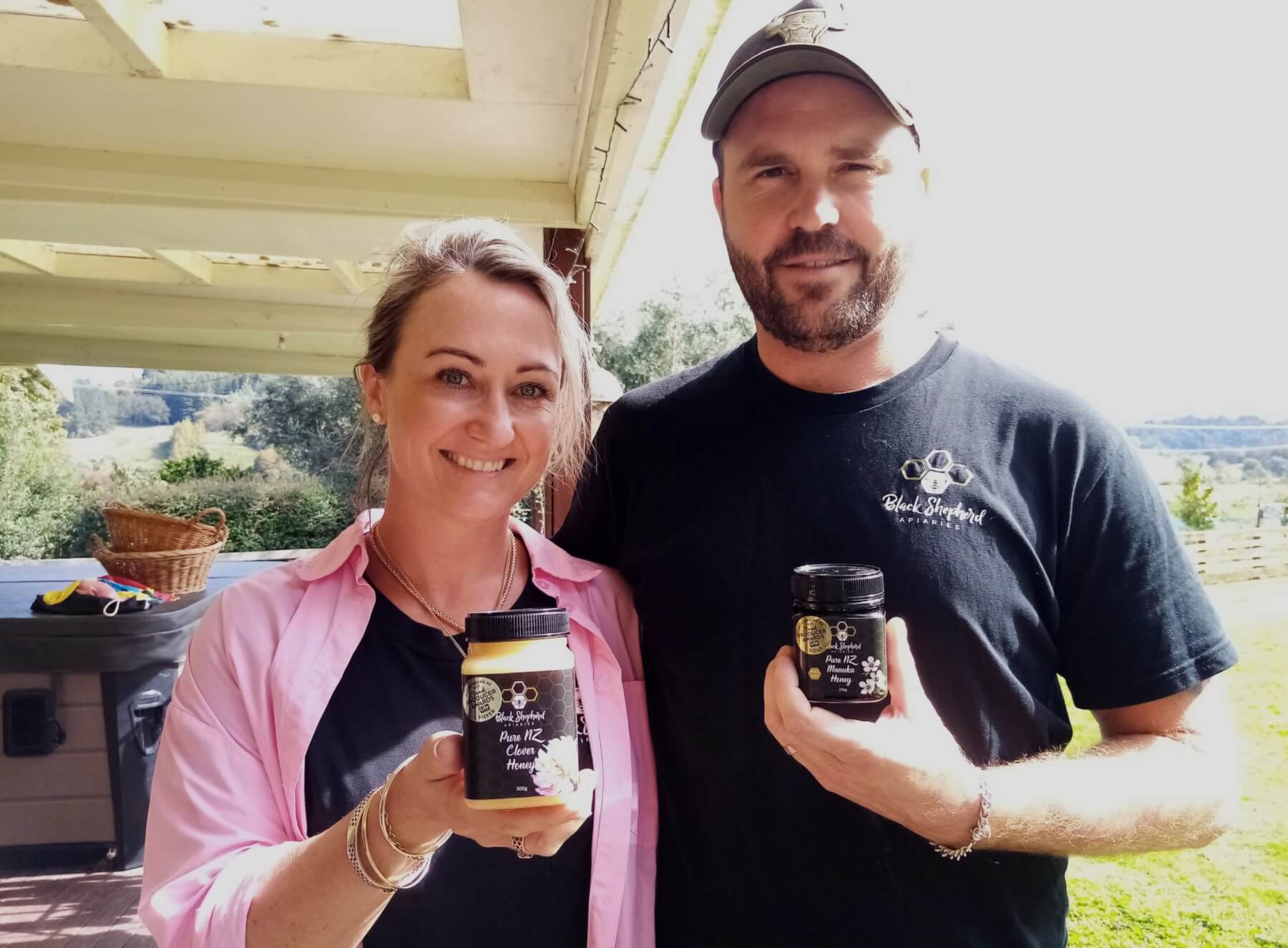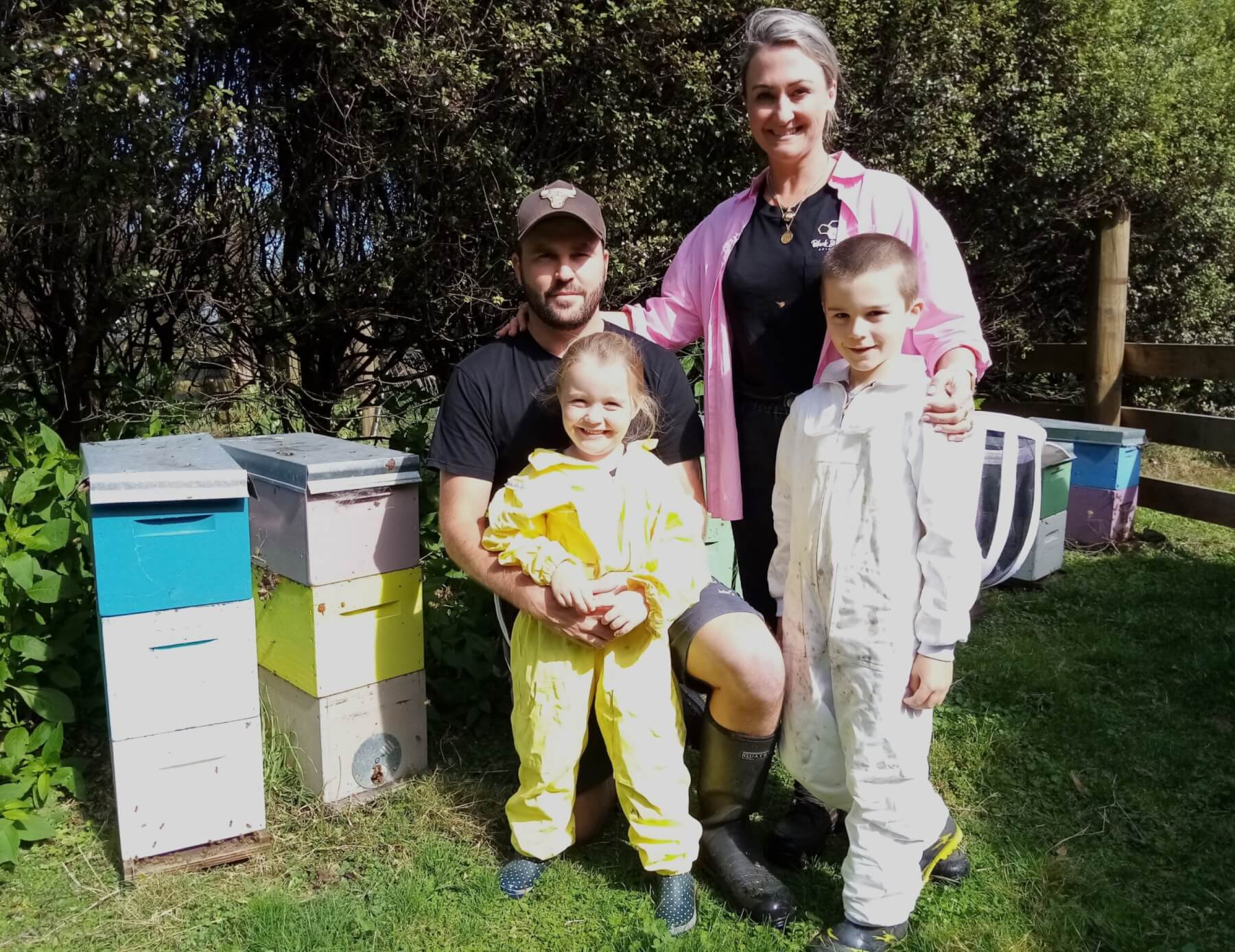Ben and Robyn Stinson’s family business in Horahora, Black Shepherd Apiaries, has been named an award-winner in this year’s Outstanding NZ Food Producer Awards.
The gold and silver medals they won for their Pure NZ Manuka Honey MGO 400+, and their Pure NZ Clover Honey respectively place a satisfying stake in the ground for the couple. Now in their fifth production year, and with Covid interrupting a burgeoning export market, the couple are delighted with the wins and hope it will provide the leverage they need to expand the operation and broaden future exports.
This wasn’t their first crack at the Outstanding NZ Food Producer Awards. That was in 2021, when they won three bronze medals for their Kanuka, Tawari and Manuka MGO 286 honeys. Making the 2023 win much sweeter, however, is the fact that they were the only honey producers to be awarded gold this year… and it doesn’t hurt that their silver-medal winning Pure NZ Clover was described by judges as “a sophisticated classic clover that takes you on a journey”.
“We’re thrilled. It’s great to get the recognition, especially as we’re up against so many much bigger commercial operations,” Robyn said. “When you’re a small, all family-run business like we are, it’s important to take the wins where we can.”
Like their classic clover, the Stinsons’ own journey has been one where they’ve added a little more value with each measured step.
Ben almost ‘fell’ into beekeeping years ago when he took a summer job at the then Cambridge Bee Products. “I had been a snowboarding instructor for three years… got really sick of the cold,” he said. “I took on this job and found I loved it.”
Robyn, meanwhile, was using her fashion design qualification to good effect at the Cambridge store she opened, Ooby Ryn. She and Ben grew up on the same road, it turns out, and when they got together and the first of their two children arrived, Robyn gave up the shop and designed wedding dresses from home. By then they had purchased their Horahora home with beekeeping in mind and had started Black Shepherd Apiaries, named after their black German shepherd, Pebbles.
The pair now work side side-by-side for the most part, but with added roles that draw on individual strengths. Ben, who now has 13 years’ beekeeping experience under his belt, is the primary beekeeper while Robyn uses her skills to market the business and does furniture restoration on the side.
Spurring them on are their children, Kiedis, 6, and Juno, 4, who can often be found in bee suits helping their parents. Ben and Robyn see their learning experiences as important, and actively promote the importance of bees at the children’s schools and at community events.
They also manage every step of the business, covering the hives, and the production and packaging of their products, which is relatively rare in the industry. It ensures they keep their finger on all aspects of the production cycle and that all the honey is traceable to its source.
It all takes place in the North Island, with many of their hives placed with landowners from Northland to Taihape. Honey is harvested at the end of summer, tested to MPI standards and packaged in a recognised food safety standard facility.
The Outstanding NZ Food Producer Awards, which were first held in 2017, were this year judged by a team of 25 specialist judges who looked closely at product quality, sustainability and the story of each brand.
Environmental considerations are high on the Stinsons’ priority list. The first-class care Ben affords his bees means they are always in good health and free from preventable diseases – they are also used for pollination around the Bay of Plenty and Waikato.
Ben conceded that while the awards have been great for the company, the year so far hasn’t been the best for the bees themselves.
“This has been one of the worst we’ve had in terms of bee behaviour. They don’t respond well to the sort of weather we’ve had and the hive behaviour reflects that. They are much more likely to come flying right at you.”










